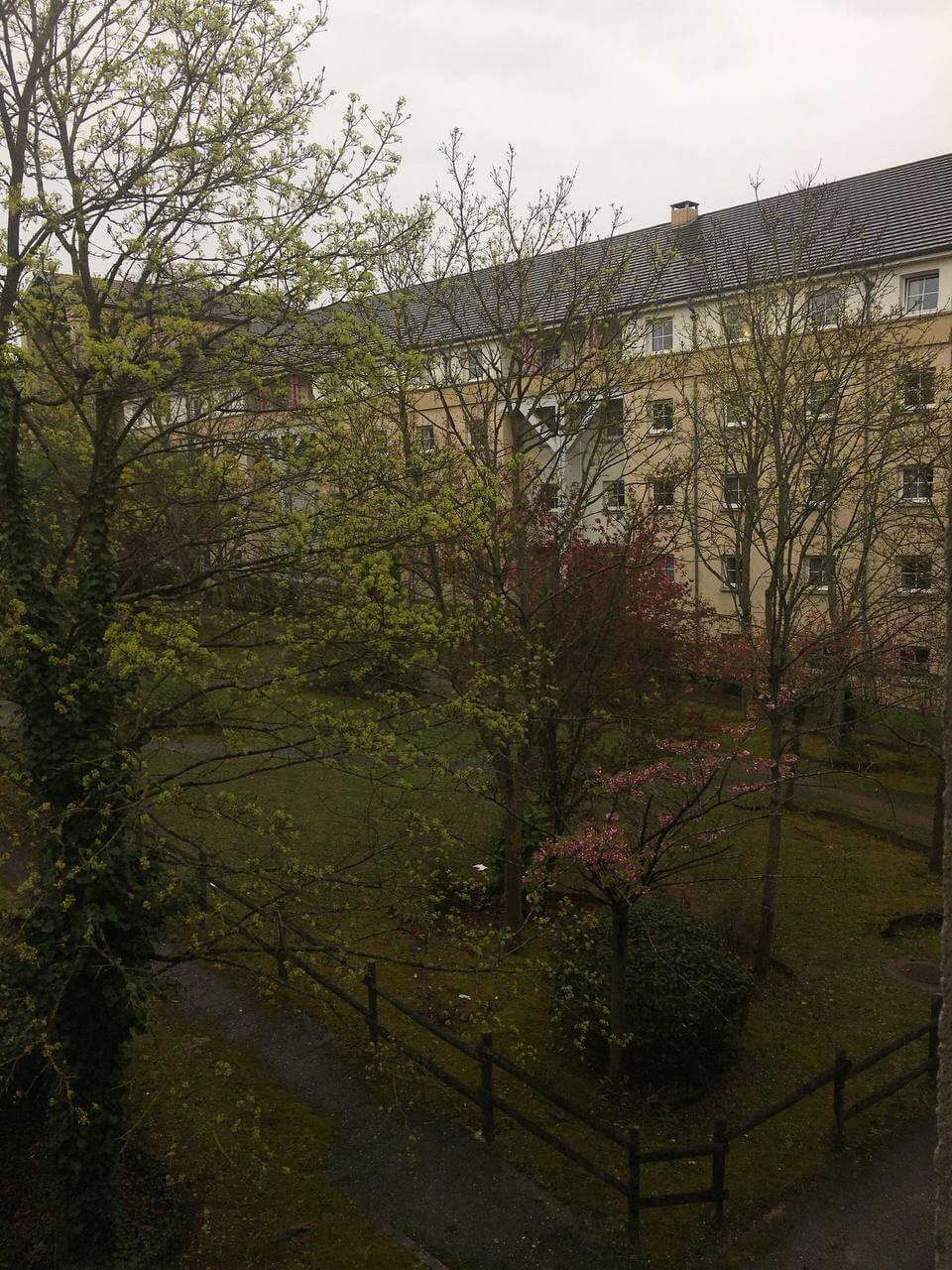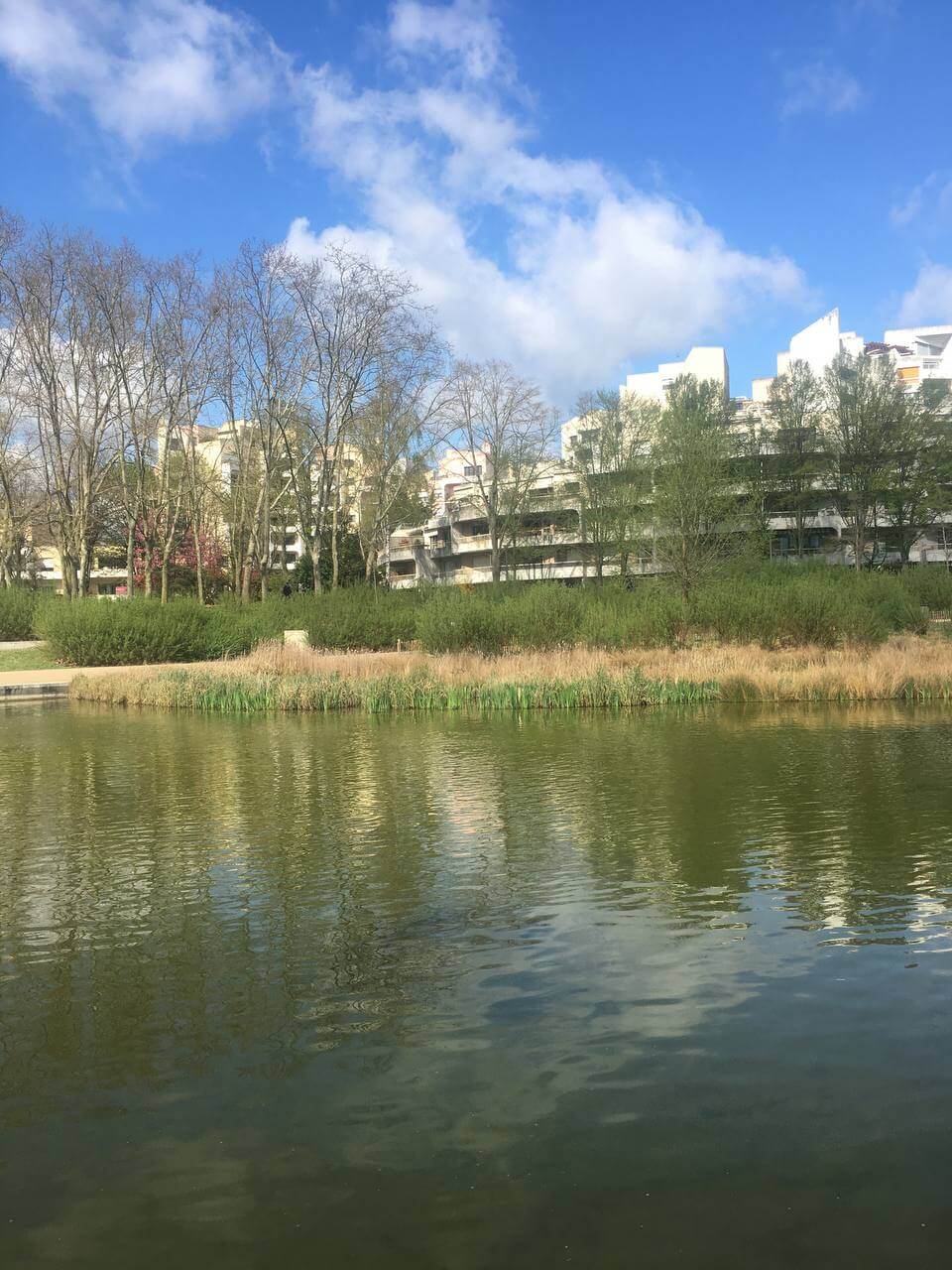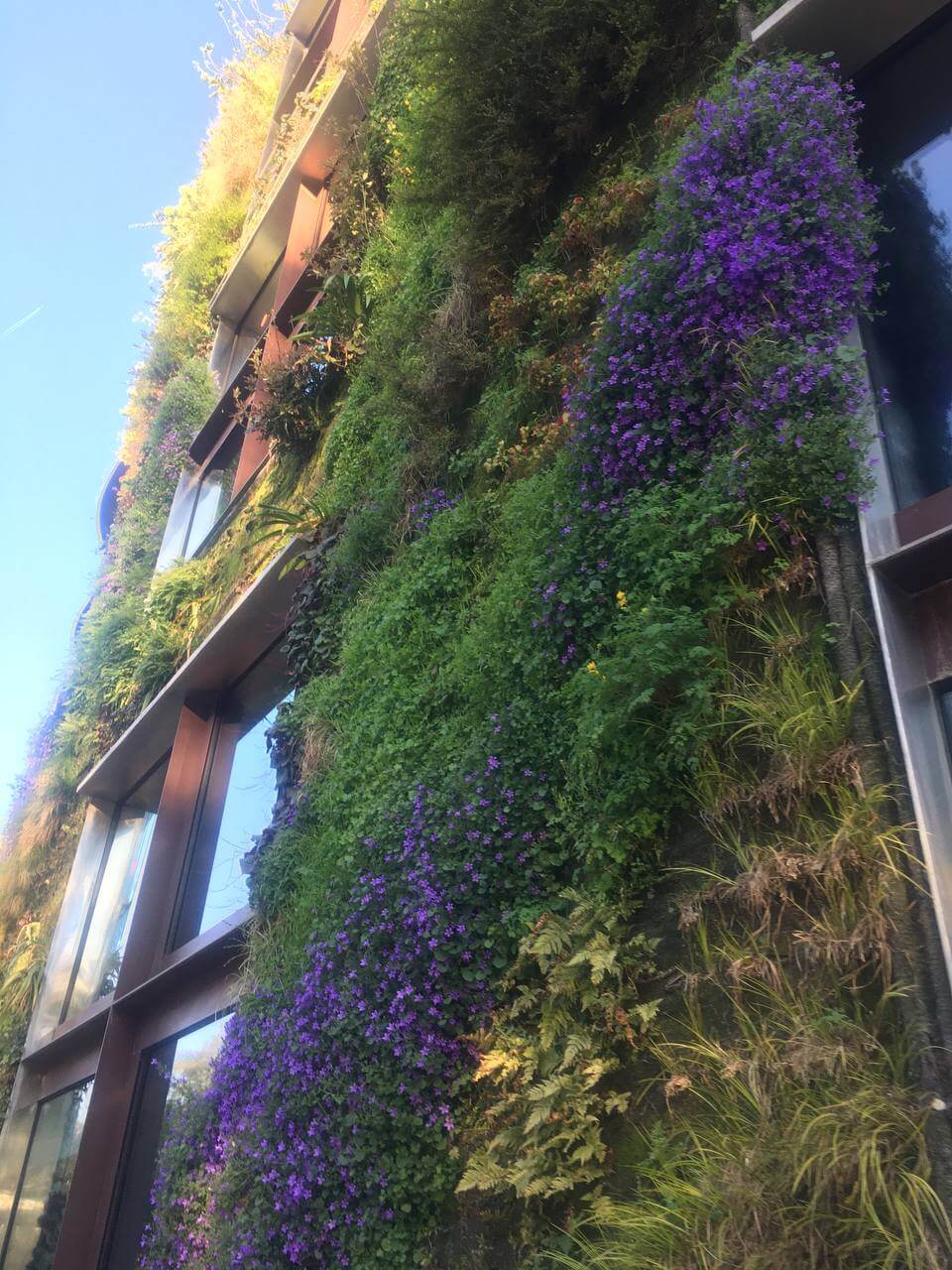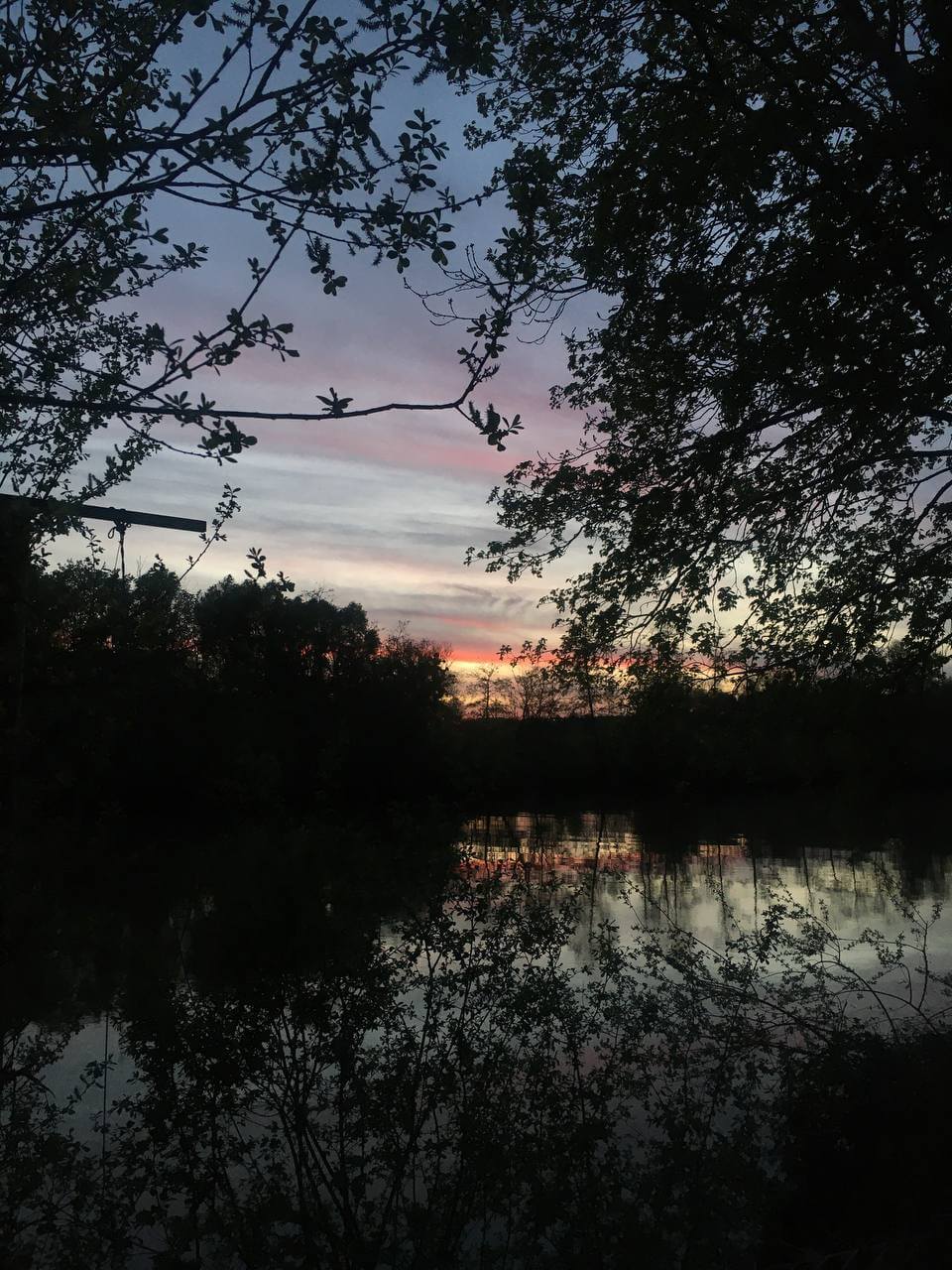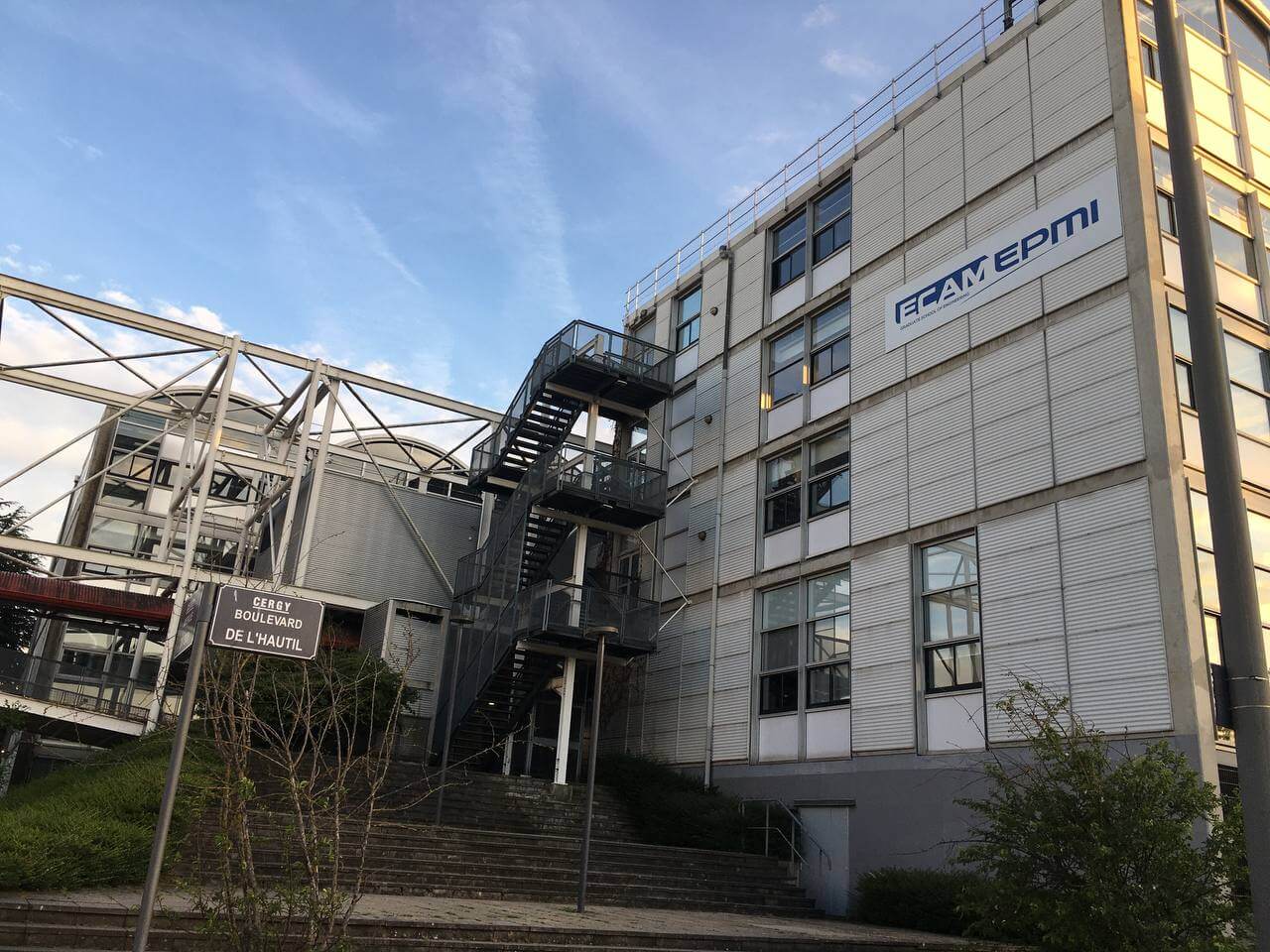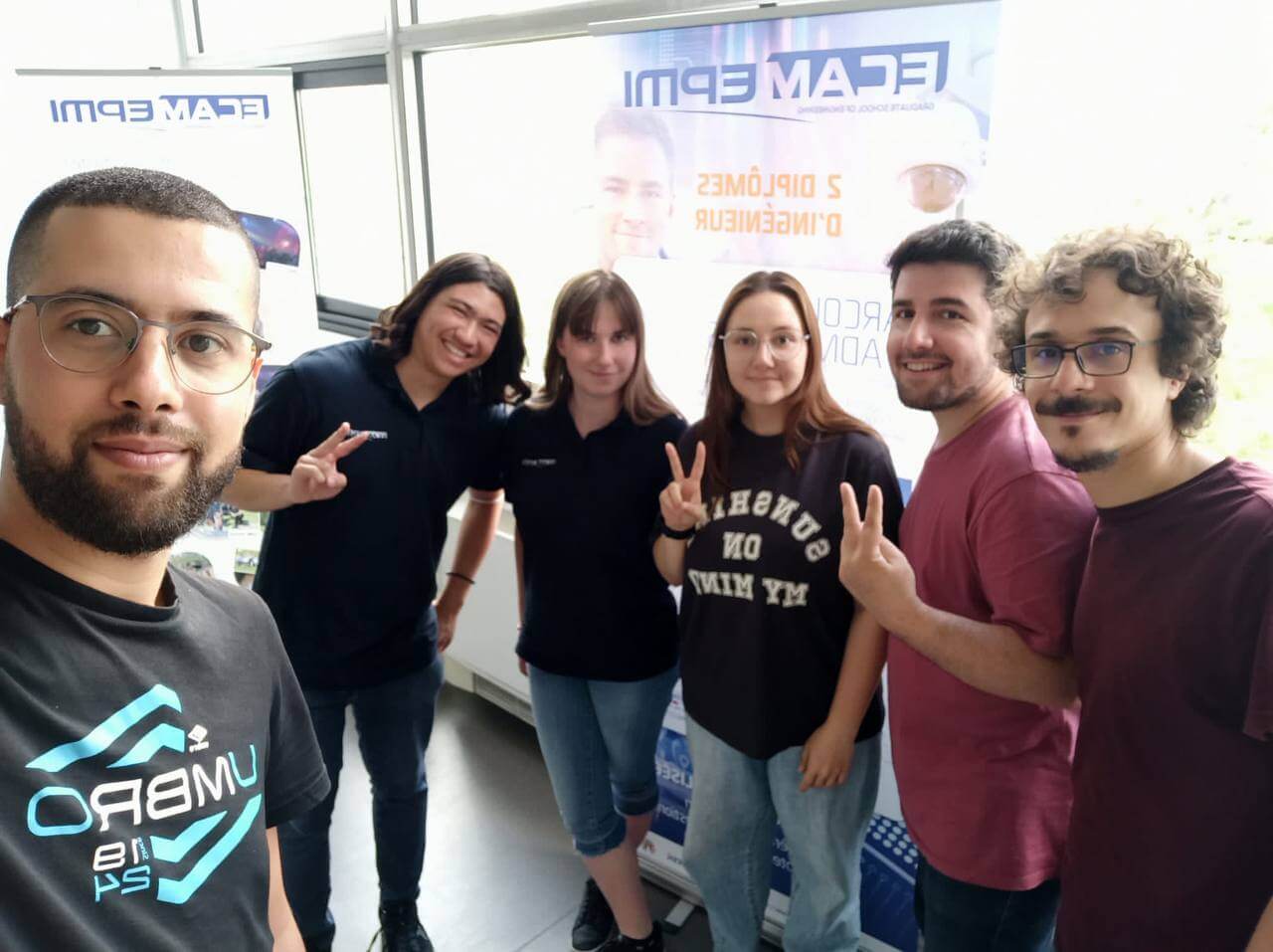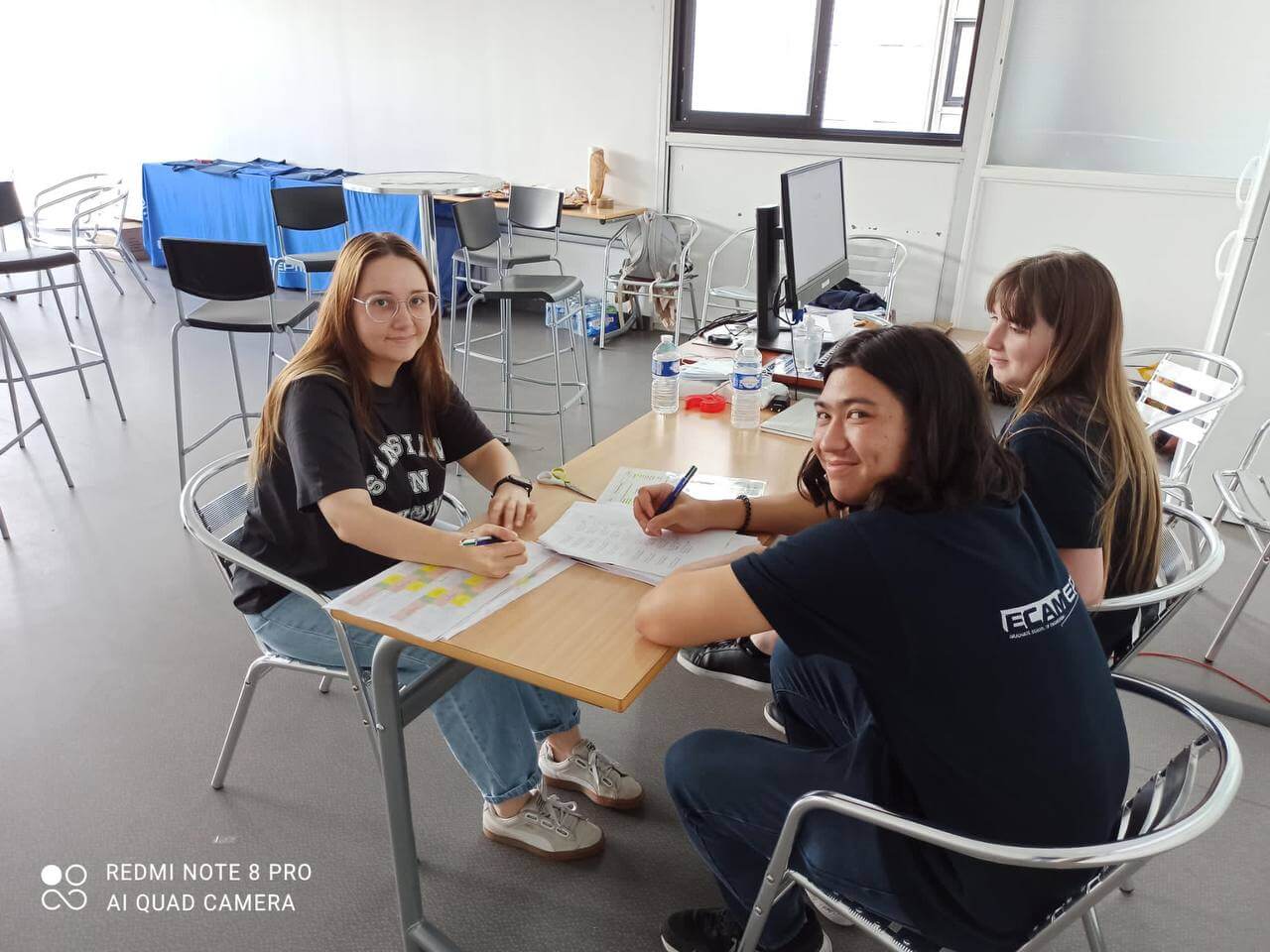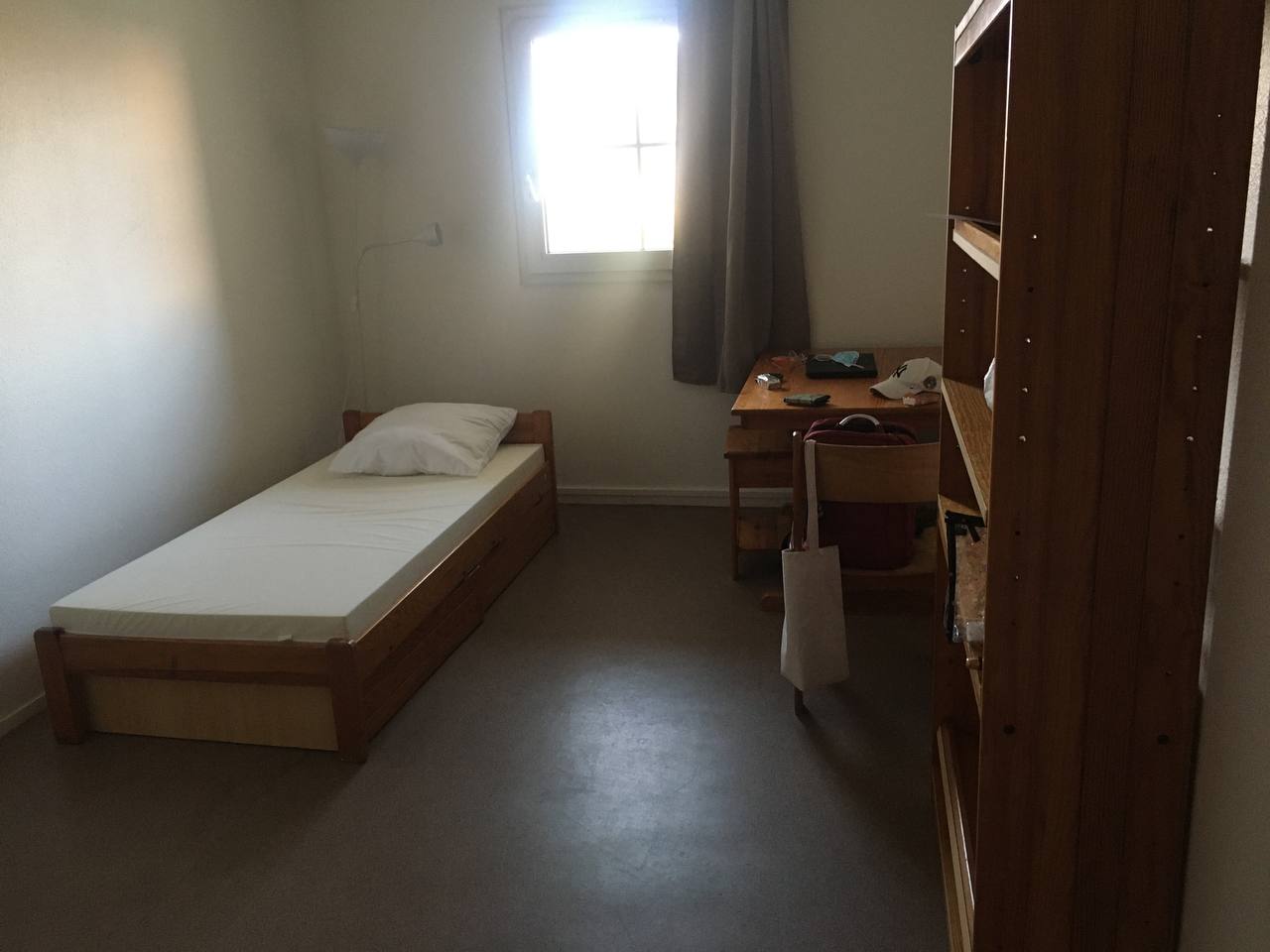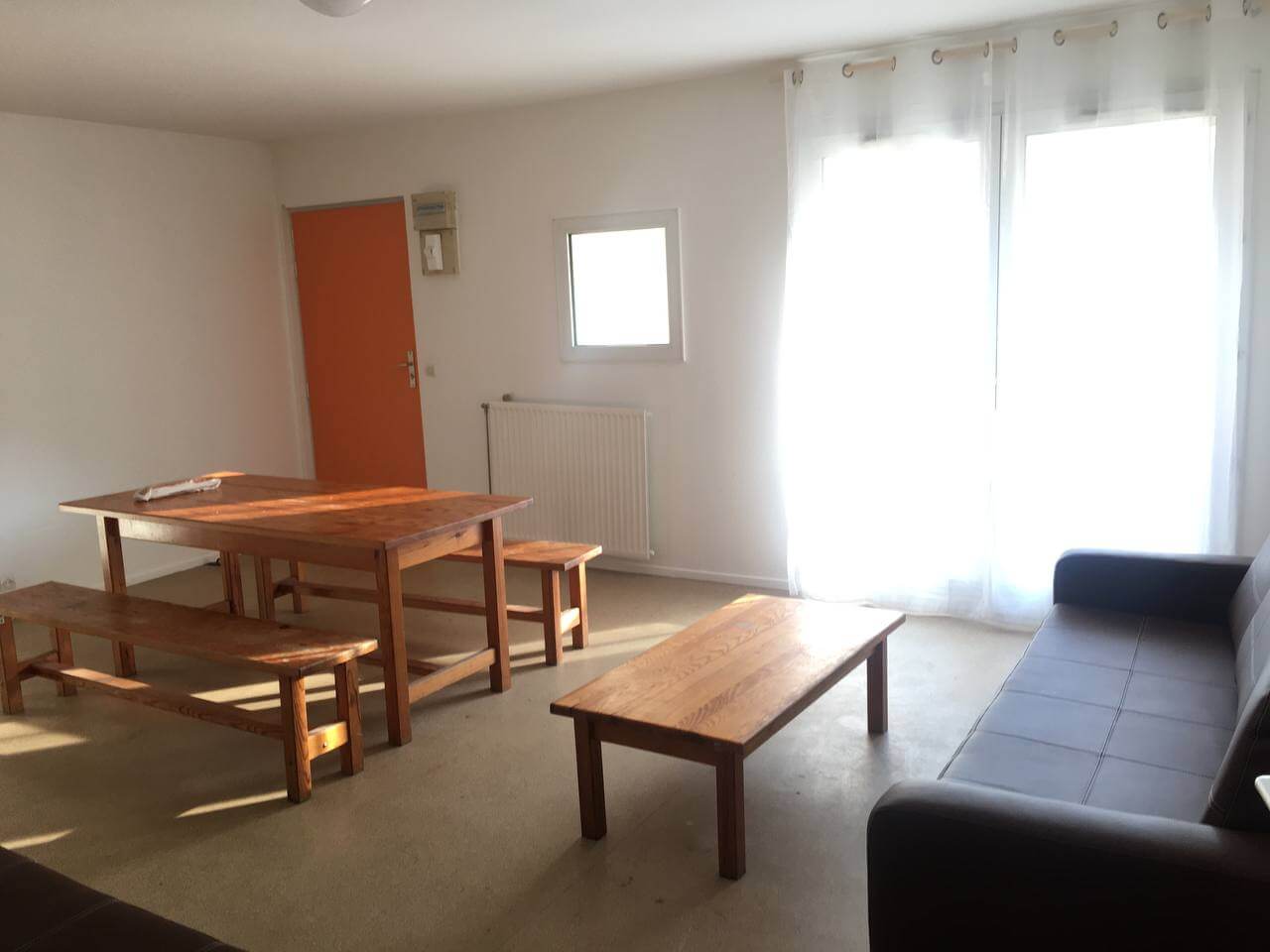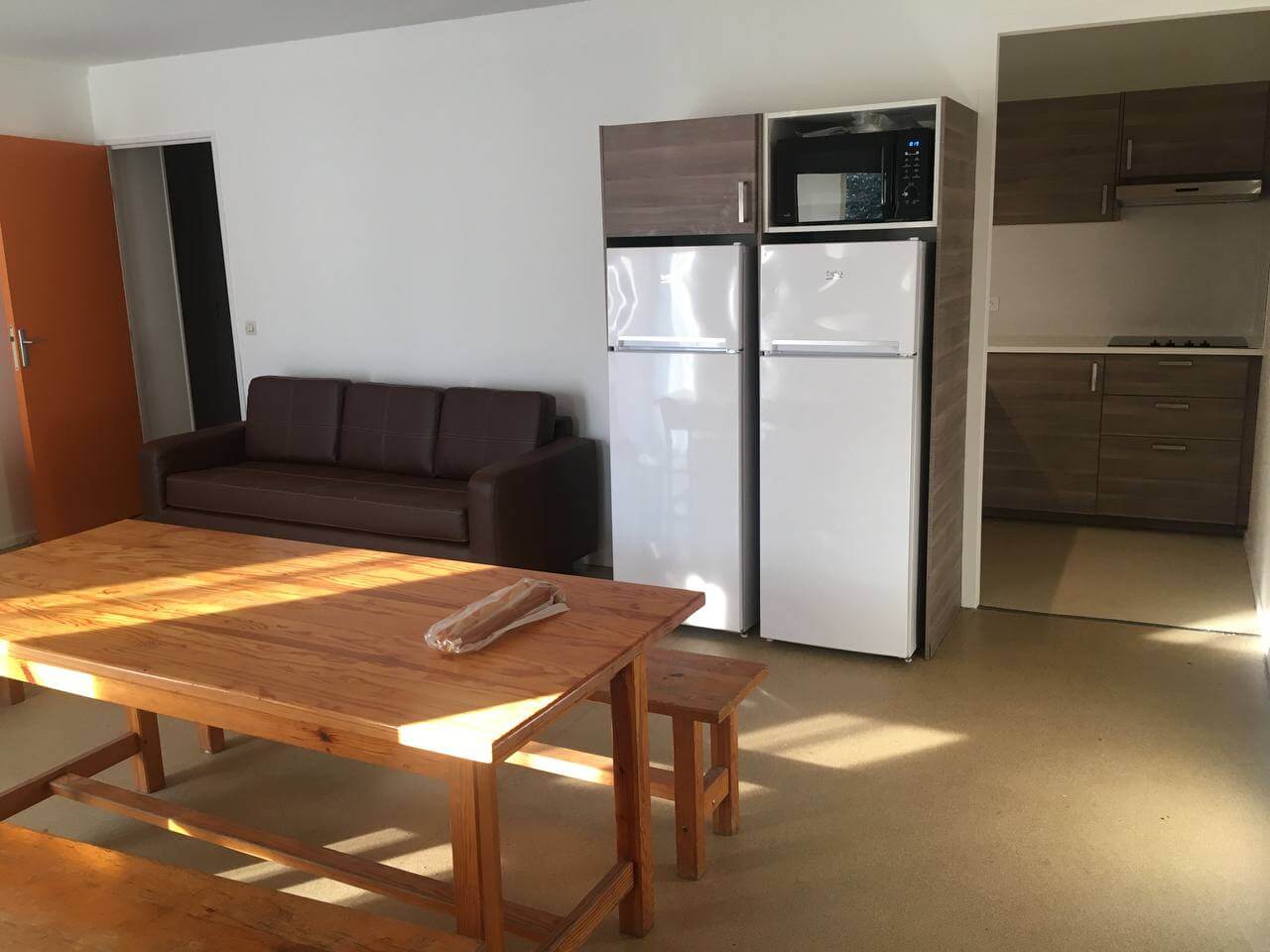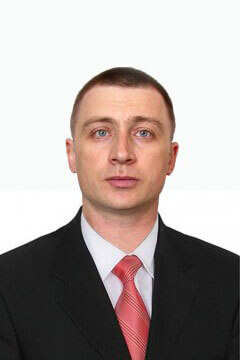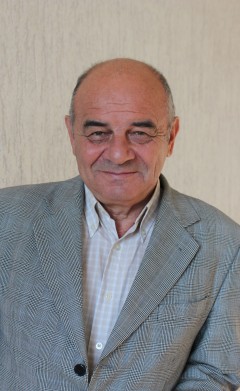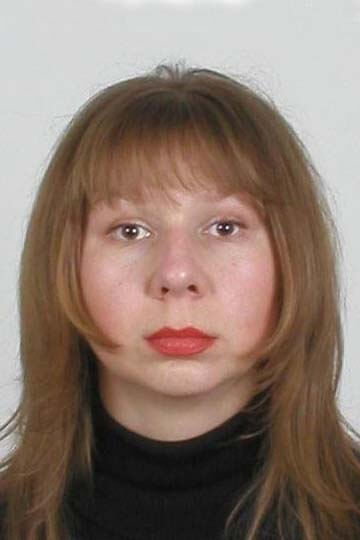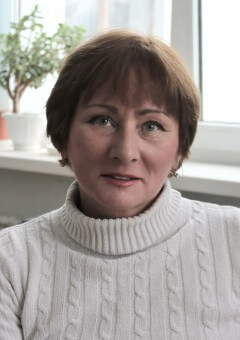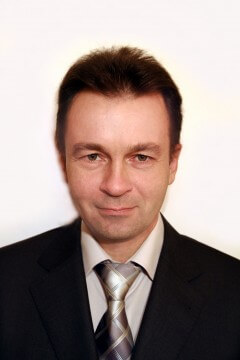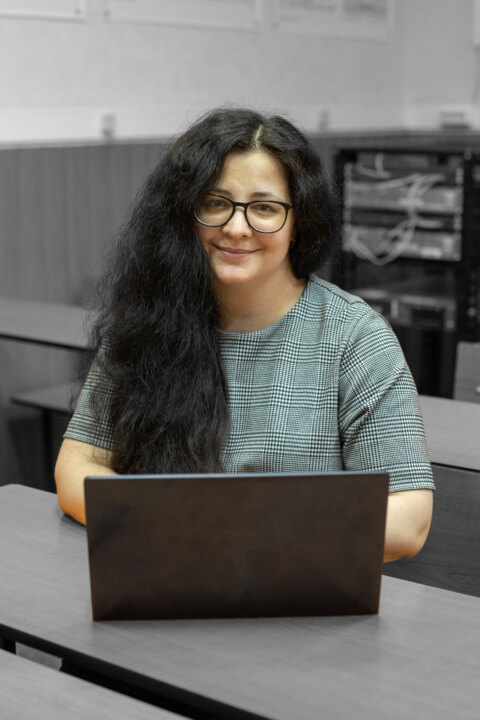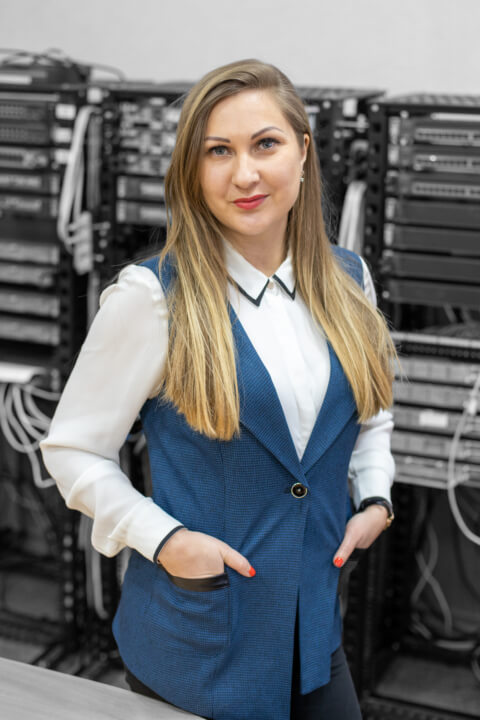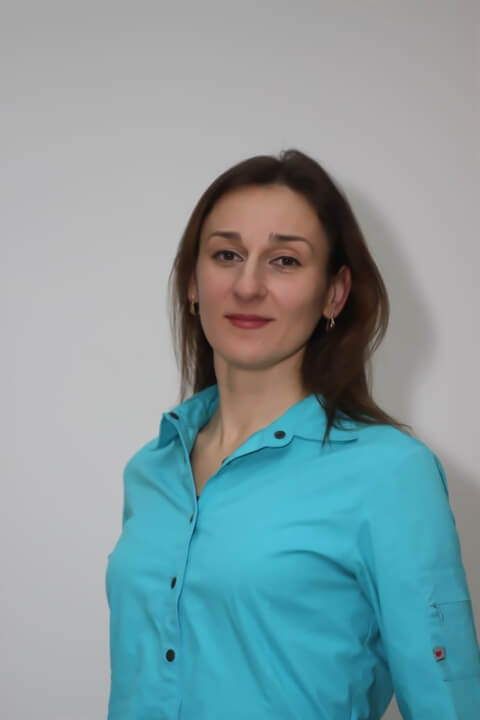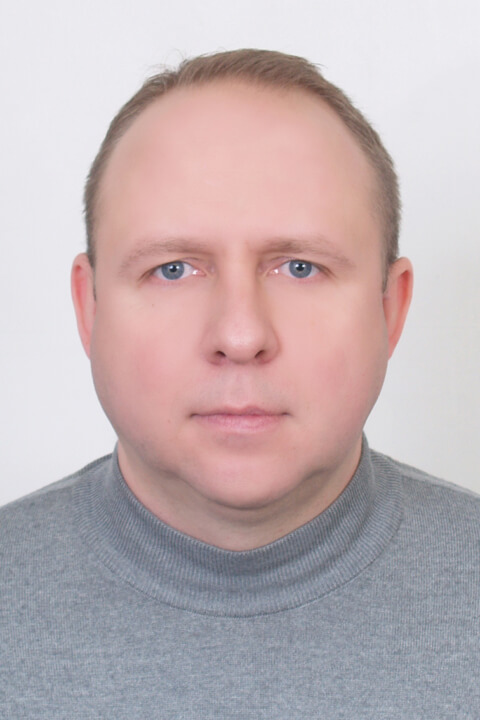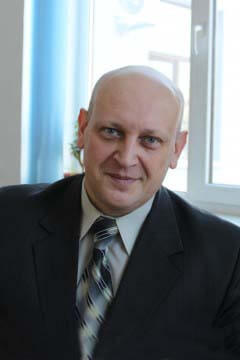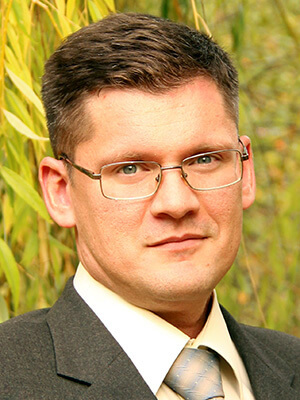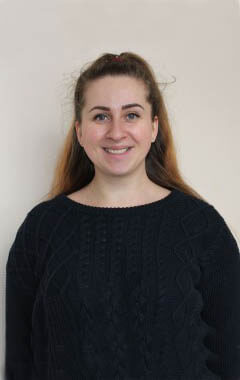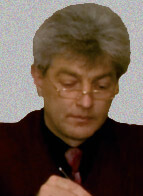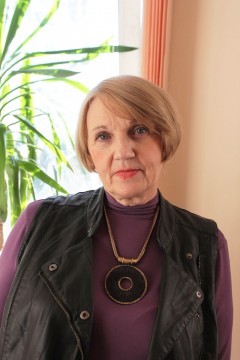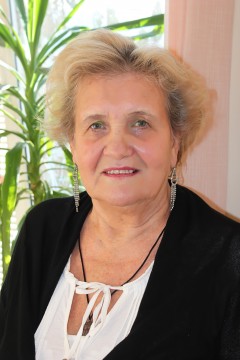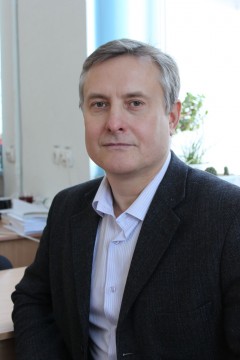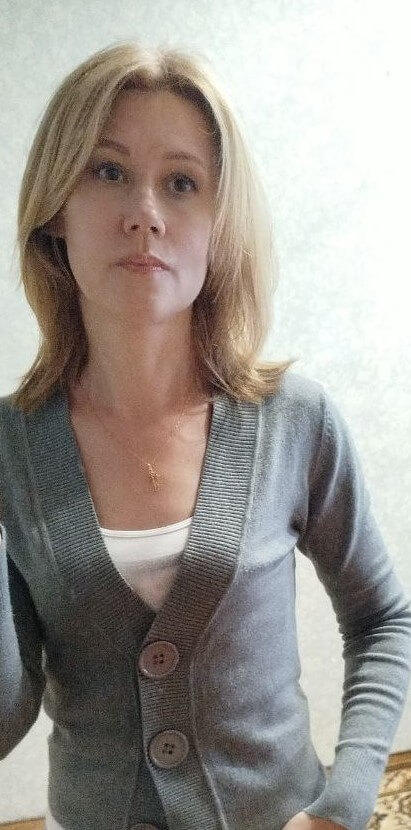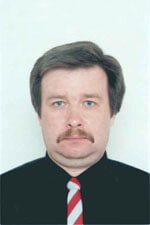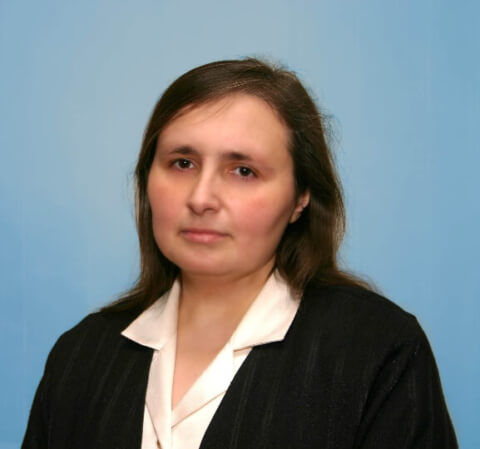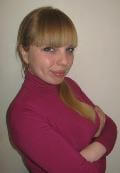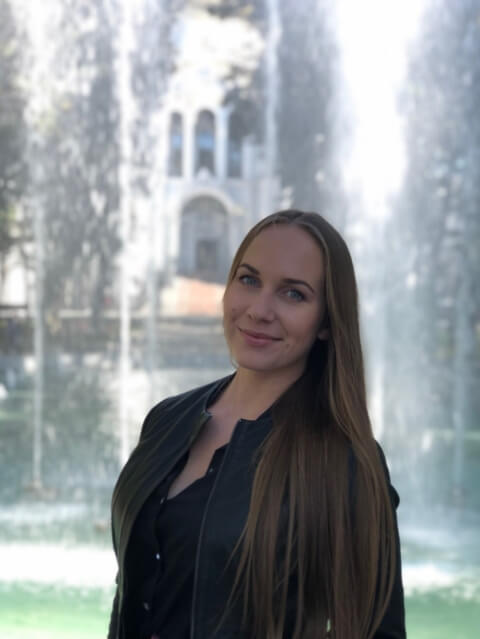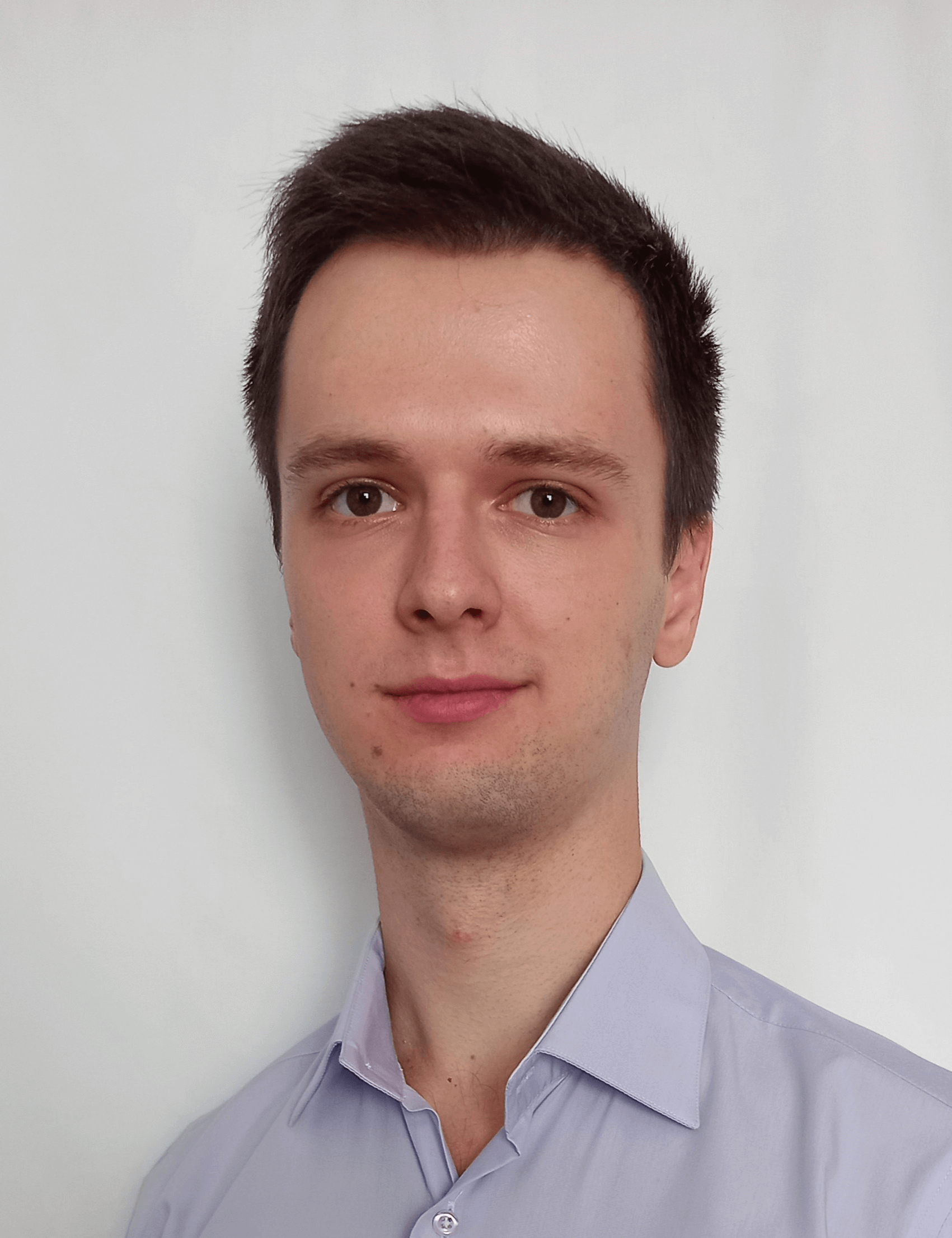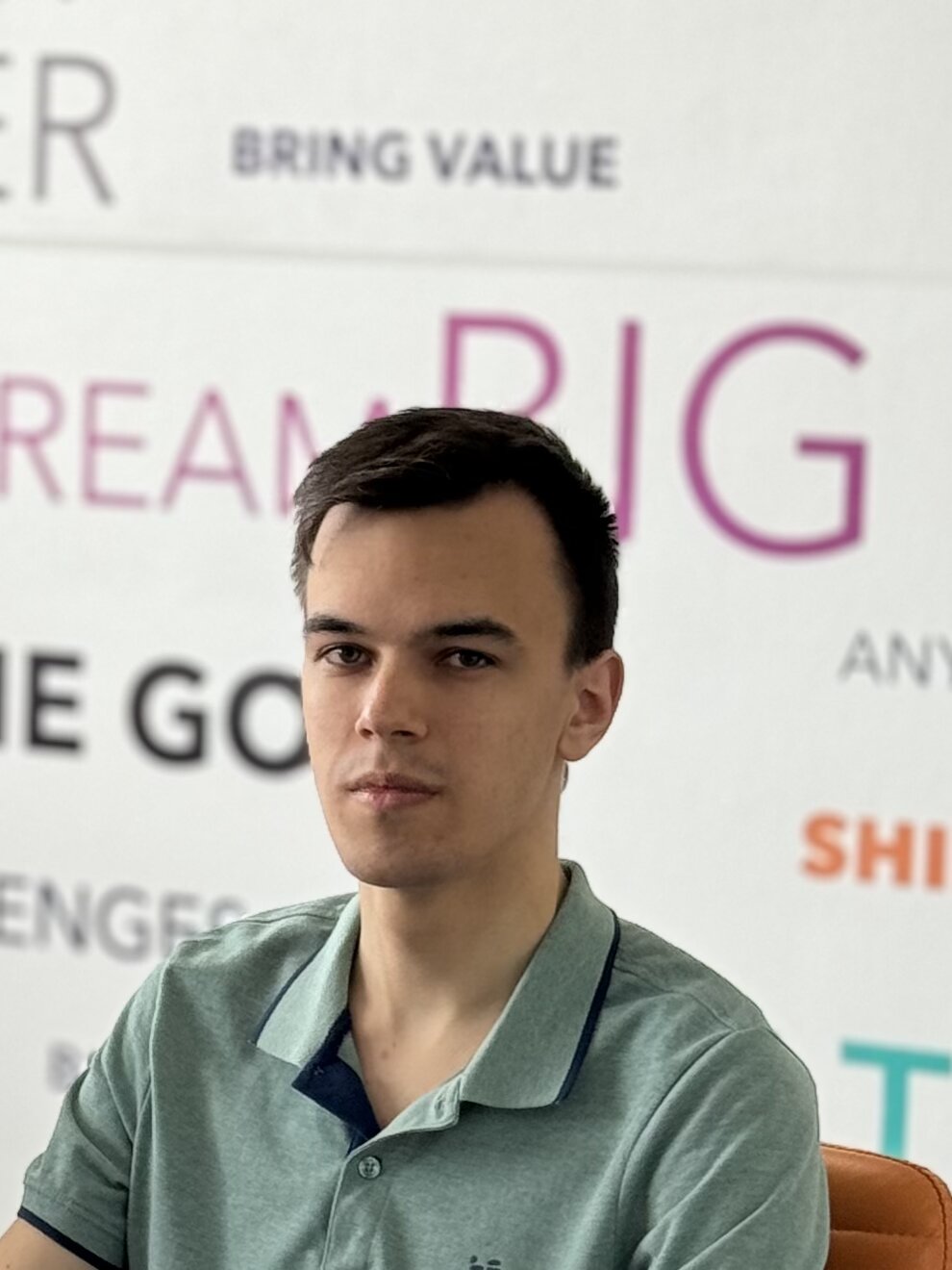News
A postgraduate student of the V.V. Popovskyy ICE Department has begun studying at the ECAM-EPMI Graduate School of Engineering, Cergy, France under the international exchange program
Thanks to the Erasmus+ European Academic Exchange Program, the postgraduate student of the KБДФ-21-1 group (1st year) of the V.V. Popovskyy ICE Department, Marina Shapoval (specialty 125 "Cybersecurity"), in the spring semester of 2021-2022 began work on her dissertation at ECAM EPMI, Cergy (France).
Where it has started?
Willingness, good grades, knowledge of the language (in my case it was enough English, but if you know other languages, it's only a plus) - and you have a chance to become a member of the academic mobility program ERASMUS +.
The mobility program is adapted for students of different years of study. So, my program (Erasmus+ KA107) is designed for postgraduate, master's and academic students. Duration of the program is 2-4 months (the length of my stay agreed with me and my supervisor). The peculiarity of my program was that I was completely focused on my dissertation research and had no additional courses, that is, I devoted all my time to the topic of my work under the guidance of appropriate advisors.
During the competitive selection process, I had to write a motivation letter and be interviewed, and the committee decided which of the applicants would go to study in the program. In my case, the research topic was coordinated with professors from the host university, so that I could work with the best professors in my field of study.
A little advice: many students are unsure of their abilities and lose a great opportunity to study abroad, you should always try.
Support
The ERASMUS+ program does everything to ensure that the student thinks about learning first, helping with the adaptation in another country. At the host university I had a mentor who helped me with all the bureaucratic (and not only) issues.
How do people live in Cergy?
Cergy is a small, cozy, clean city in the Ile-de-France region. The city is fairly new, so almost everywhere you can see construction projects in full swing. But at the same time, the city remains quite calm, no one is in a hurry, and you get the feeling that life slows down. If this kind of life isn't for you, don't worry, Paris is just an hour away, with lots of tourists and a completely different pace of life.
Cergy is a city, though not too big, but very beautiful and still a student city. Life here stops altogether only during the exam period. If you do not pass by the student restaurants and libraries during this time, it seems that there are almost no people in the city. But after exams, you'll see companies of students everywhere and they will almost always be international. You won't see such a variety of nationalities anywhere else.
Features of teaching
The system of learning and teaching in France differs from the Ukrainian one. Students are given more freedom, a lot of attention is paid to self-education, and with that comes more responsibility for learning. If at our university you can always understand the subject by constantly being in touch with the lecturer, this way doesn't work here. But, of course, you can always ask questions and consult with the lecturer.
In my case, I spent most of my time in the graduate lab with other students who came from the same program as me.
Housing and Material Support
In France, schools and universities usually do not have their own dormitories. But in this case, Crous, an organization that helps students with all everyday matters, comes to the rescue. You can go to them with questions about finding housing and benefits, student restaurants - they will help everything to make life easier for students. Crous is not the only organization, so you may be offered to live in the dormitory of the organization with which the school has an agreement.
Usually the living conditions depend on the cost, but whichever apartment you choose, you will always have a private room that is locked. My first dorm had 5 rooms, 3 showers and 1 toilet, a kitchen, and a living room. But there were no neighbors, so all the space was just for me. In my second dorm, I have a roommate with whom we share the toilet and kitchen, and the shower room was in my room and for my use only. The Erasmus+ grant covers all your living expenses, even in the city of Cergy. France is not a "cheap" country, and usually the prices in Paris correspond to the prices in any tourist place, since the city of Cergy is in the French county, the prices here are also appropriate.
My experience
Of the minuses:
1) A different speed of life:
- In France, no one rushes anywhere, especially if we are talking about some bureaucratic issues. No matter how much you want, nothing is more likely to happen;
- Mail: all answers, all documents you will receive and send by mail. You can classify this as a plus as well, because when you get home, getting any document will seem like an easy walk;
- on Sunday, almost everything is closed, that is, there are no convenience stores (you will often mention the ATB), so on Friday/Saturday there are considerable lines in the stores.
2) There are not many English-speaking people (I'm not talking about students or young people in general). Even if the French know English, they will still use French in conversation with you. So it is already a challenge for you to learn at least the base of the local language.
3) Climate. If we have a clear division into seasons, and we can adapt to each of them, in France it is somewhat different. Just have an umbrella handy.
On the plus side:
1) People are very kind and helpful. Almost any passerby can help, but at first the language barrier prevents. Not once during the whole term I was not refused help by both university employees and ordinary people. I was able to meet students who have gone through an adaptation journey and gladly made it easier for me.
2) Nature. Despite the stone buildings, you will see green colors everywhere and it doesn't have to be a park. You can always see plenty of plants on all the open balconies.
3) The education is very good. Graduate research is still not a full-fledged study with other students, so it is difficult to give a full assessment in my circumstances. However, even this period of study I liked very much. The approach to learning here is somewhat different than in Ukraine: There is a great focus on practice. You have to learn a lot on your own - notes, Internet, communication with the teacher - in general, the choice is there.
4) Teachers are professionals; they always take an individual approach to students.
5) All classes for practical classes have modern equipment. In general, one can study here even without a computer. There was no specific attachment to tools, almost always there is an opportunity to implement tasks using what you know.
Now some advice I would like to give, based on my experience and the mistakes I have made:
1) Solve the paperwork first. A mentor should help you with this. Don't be shy to ask and ask again. Our countries have many differences and everyone understands that. Also, feel free to ask for help from people who know French (to go with you to the administration, etc., it will help not only you but also the institutional staff).
2) Be patient, remember the sloths from Zveropolis, and be prepared for the same treatment you get in all public institutions. It's not an attitude toward you personally because you are a foreigner, it's the system.
3) European universities have access to excellent software and various databases with articles and references. Do not hesitate to use it for your studies and research.
4) Make new connections and don't lose contact with professors after completing the program, as it will help your professional future.
In summary, Erasmus+ is a very useful and interesting experience, which allows you to learn about another country not only from the tourist side. Such experience is invaluable because it allows us to learn how great is the diversity of existing cultures and how important it is to develop and value our own.
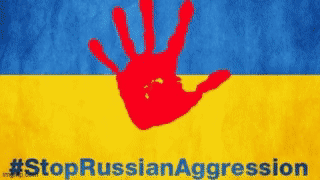
 Українська
Українська
